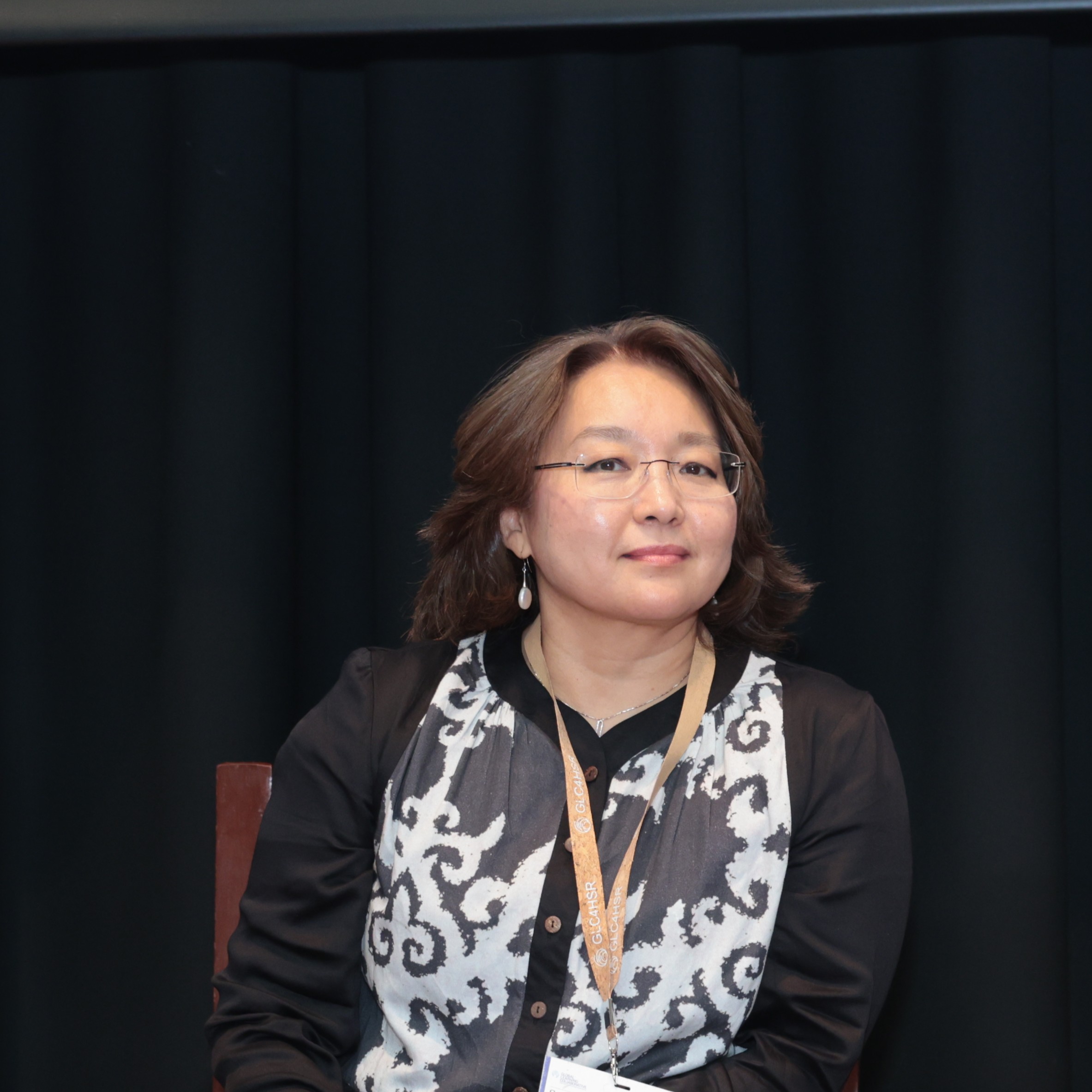
Dr. Aida Karazhanova (Ph.D.) is Economic Affairs Officer at the UN Economic
and Social Commission for Asia and the Pacific, where she promotes ICT for
Development in particular through (i) facilitation of the implementation of
the Asia‑Pacific Information Superhighway (AP‑IS) action plan 2022‑2026 and
(ii) acting as focal point of the ICT and Disaster Risk Reduction Division
of ESCAP to ESCAP Sustainable Business Network (ESBN) task forces on
“Digital Economy” and “Disaster and Climate.” She is interested in packaging
projects, enabling policies, and digital technologies to link the digital
and green components.
Previously, she focused on urban water governance and inclusive development
through policy advocacy with a special emphasis on decentralized solutions
under technical cooperation projects within the Asia‑Pacific Water Forum
network and supported Asia‑Pacific Water Summits. Before joining UN ESCAP,
she facilitated the development of regional and national sustainable
development strategies as part of UNDP and UNEP RRC.AP at AIT, promoting
integrated policy frameworks using a systems thinking approach at the goal
and target levels of the SDGs and through rapid assessments of policy
impacts.
Her research interventions and service products also cover policy guidelines
and tools for the development of countries’ Sustainability Outlooks, as well
as policy frameworks to support sectoral interventions in urban energy and
water cycles, including sanitation and wastewater treatment. Dr. Karazhanova
received her Ph.D. in biochemistry, headed the Chemical Laboratory at the
British Gas Chair of Environmental Technology at KAZ State Academy of
Architecture and Construction (Almaty), and held principal positions at UNDP
and UNEP RRC.AP, where she raised grants portfolios on environment,
sustainable development, and climate change, contributing to the
operationalization of national and regional UN programs and projects.
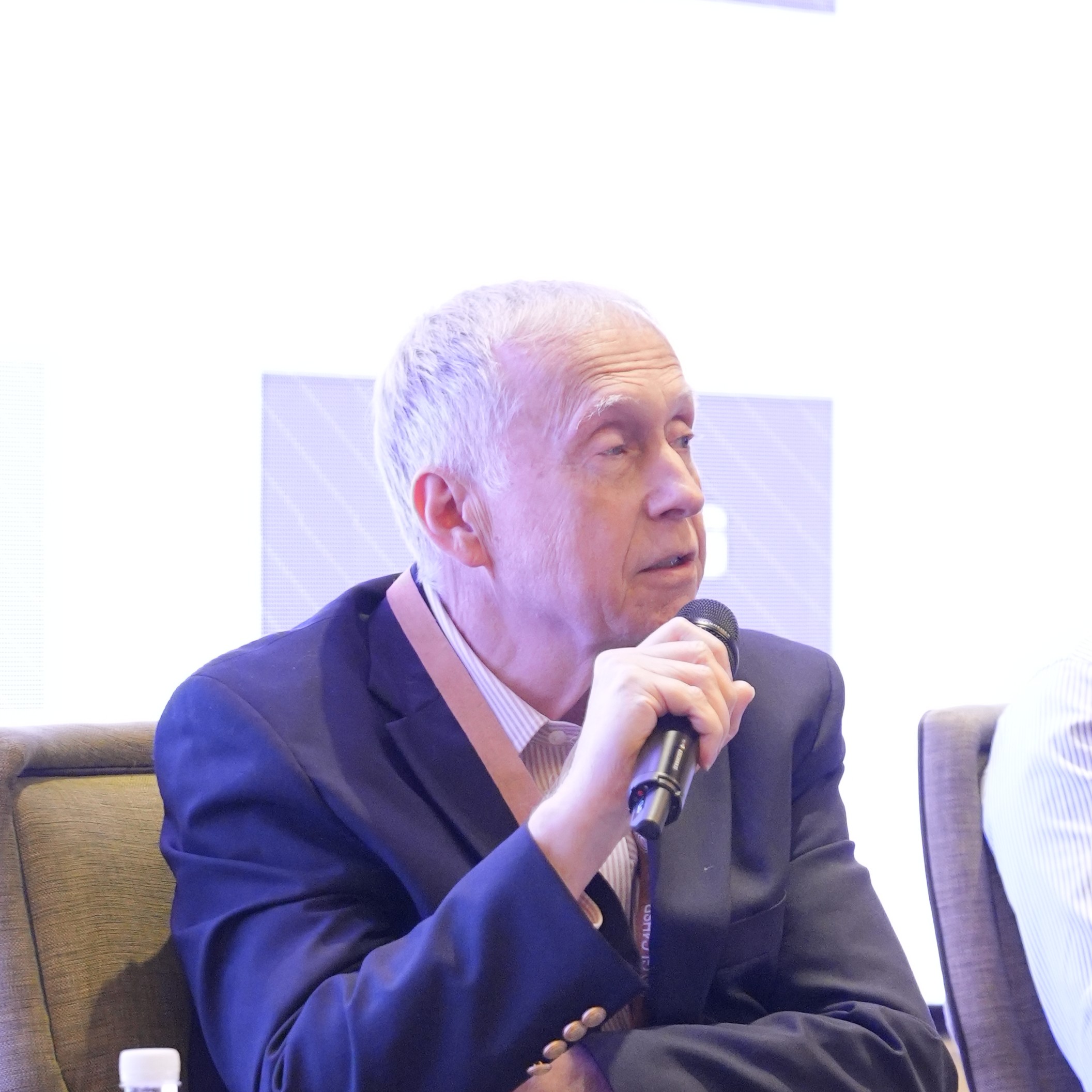
Dr. John C. Langenbrunner is an Expert Advisor on Social Health Insurance
and a global health financing expert with over 35 years of experience
advising governments on health systems reform, including advising the US
government’s health reforms. His major areas of expertise include health
financing, strategic purchasing, and universal health coverage, and he has
extensive experience working on health financing issues in Europe, the
Middle East, Asia, and Africa as a health economist.
He was formerly the Lead Health Economist at The World Bank, where he led
the design, development, and implementation of health sector loan projects
and served as a resident technical health advisor in China, Russia, and
subsequently Indonesia. He previously worked at the U.S. Center for Medicare
and Medicaid Services and with the U.S. Office of Management and Budget. In
the mid‑1990s, Dr. Langenbrunner served on the Clinton Health Care Reform
Task Force for the U.S. White House.
Dr. Langenbrunner is currently an Expert Advisor on Health Reform to the
Kingdom
of Bahrain, and an Expert Adviser on Social Health Insurance to the
government
of Indonesia.
Dr. Langenbrunner is currently the Expert Advisor on Health Reform to the
Kingdom of Bahrain. The author of multiple books and articles, he holds
master’s and doctorate degrees in Public Policy/Economics and Health Policy
from the University of Michigan.
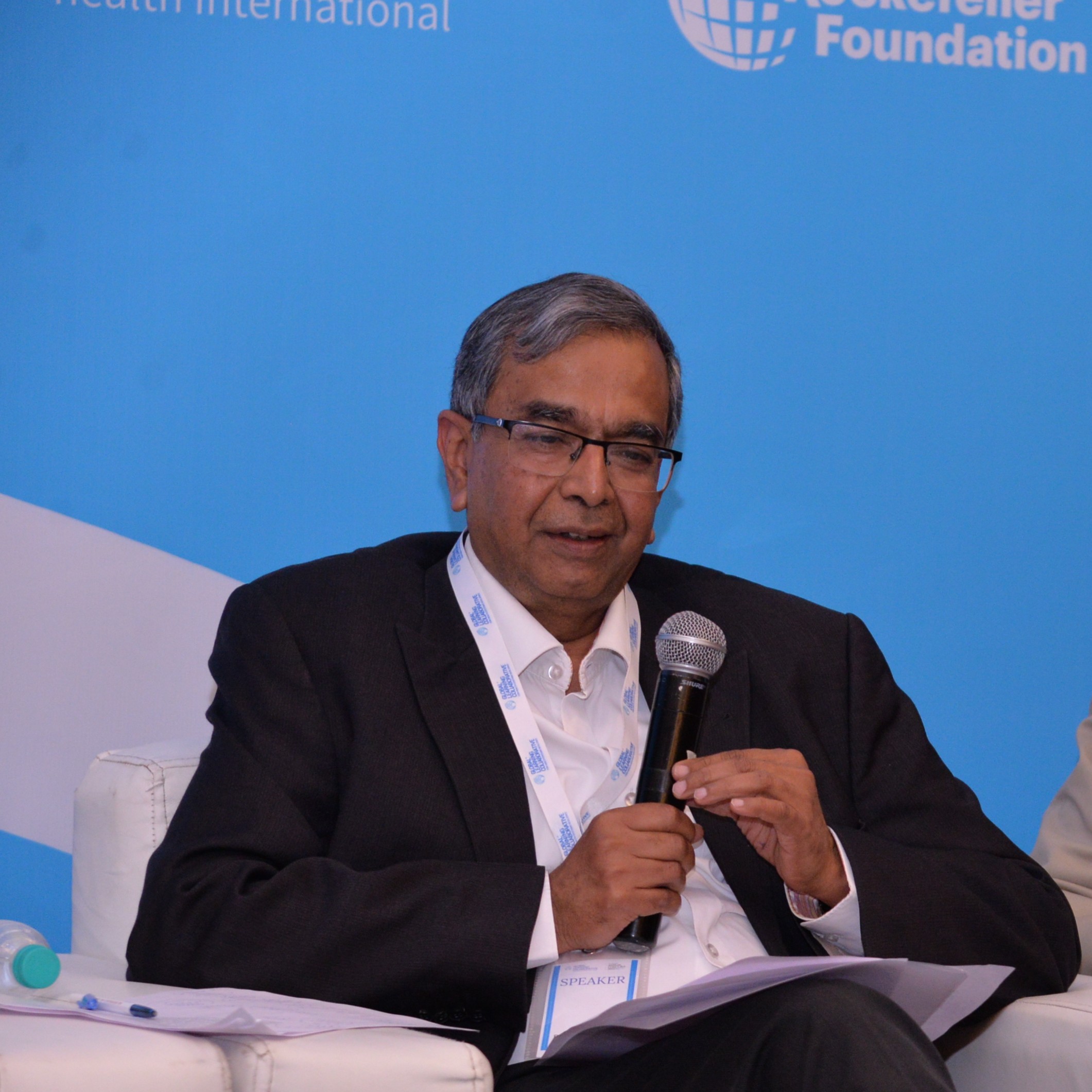
Prof. K. Srinath Reddy is the Past President of the Public Health Foundation
of India (PHFI) and Former Head of the Department of Cardiology at the All
India Institute of Medical Sciences (AIIMS). He is currently an Honorary
Distinguished Professor at PHFI.
He was appointed as the first Bernard Lown Visiting Professor of
Cardiovascular Health at the Harvard School of Public Health (2009–13) and
served as an Adjunct Professor of Epidemiology at Harvard (2014–2023). He
holds advisory positions on several national and international bodies and
recently published the book Make Health in India: Reaching a Billion Plus.
He is also an Adjunct Professor at the Rollins School of Public Health,
Emory University, and an Honorary Professor of Medicine at the University of
Sydney. He was the first Indian elected to the U.S. National Academy of
Medicine and has received multiple prestigious national and international
doctorates and fellowships. He served as President of the World Heart
Federation (2013–15) and is a Padma Bhushan awardee. He advises the
governments of Odisha, Punjab, Haryana, and Andhra Pradesh on public health
and has served as physician to two Prime Ministers of India.
Prof. Reddy obtained his medical degree from Osmania Medical College
(Hyderabad), M.D. (Medicine) and D.M. (Cardiology) from AIIMS Delhi, and an
M.Sc. in Epidemiology from McMaster University (Hamilton, Canada). He has
served on numerous WHO expert panels, chaired the Core Advisory Group on
Health and Human Rights for India’s National Human Rights Commission, was a
member of India’s first National Science and Engineering Research Board,
chaired the High‑Level Expert Group on Universal Health Coverage set up by
the Planning Commission, and led the National Board of Examinations
overseeing postgraduate medical education in India.
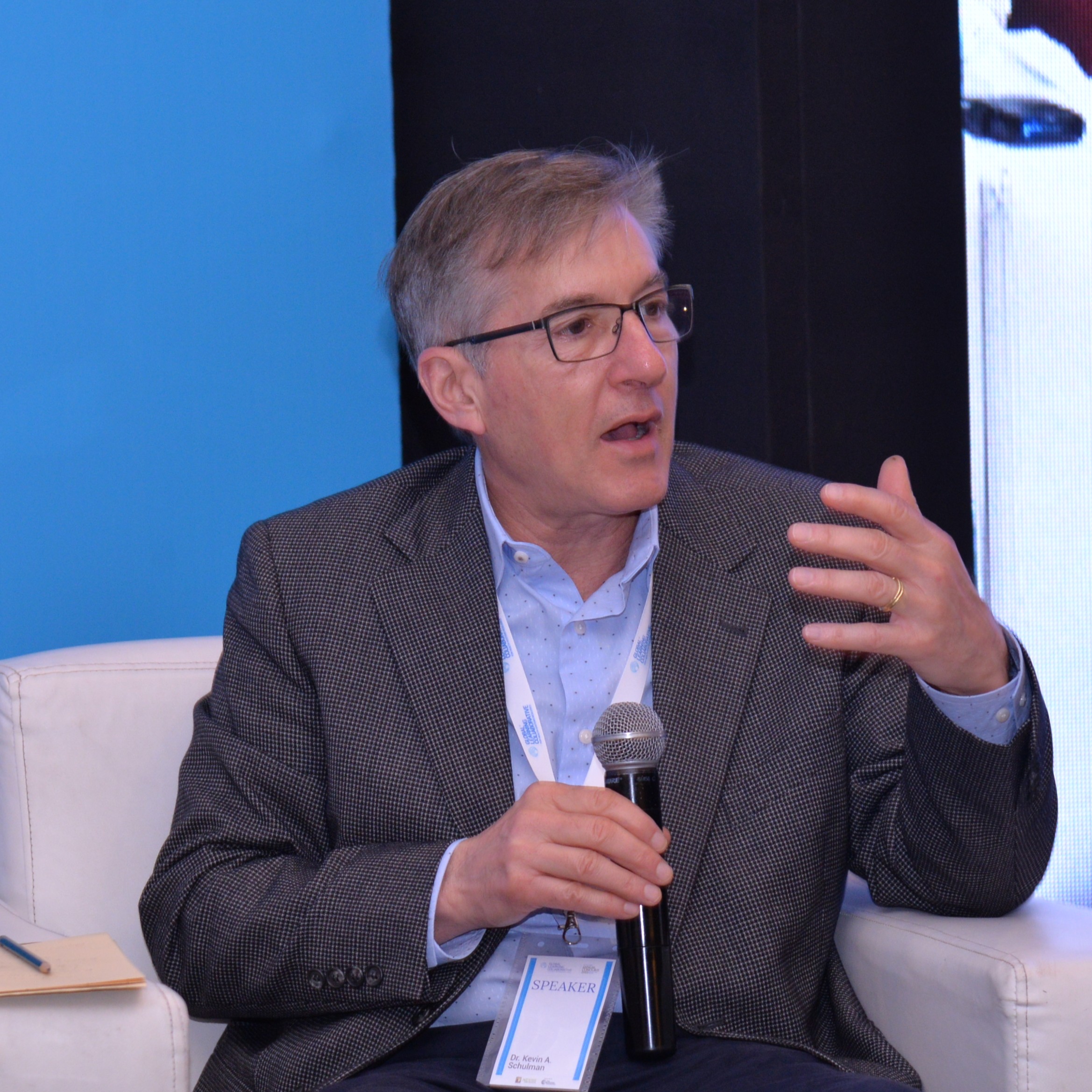
Dr. Kevin A. Schulman is Professor of Medicine at Stanford University School
of Medicine and, by courtesy, Professor of Operations, Information, and
Technology at Stanford’s Graduate School of Business. He serves as Interim
Division Co‑Chief for the Division of Hospital Medicine and as Associate
Chair of the Department of Medicine. He is Faculty Director of Stanford’s
new applied master’s degree program, the Master of Science in Clinical
Informatics Management, and Deputy Director of the Clinical Excellence
Research Center (CERC). He also holds an appointment in the Department of
Health Policy.
Dr. Schulman’s research interests include organizational innovation in
health care, health care policy, and health economics. With over 300
original articles, 100 review articles/commentaries, and 40 case
studies/book chapters, he has had a broad impact on health policy
(h‑index = 77). His peer‑reviewed articles have appeared in the New England
Journal of Medicine, JAMA, and Annals of Internal Medicine. He is on the
editorial/advisory boards of the American Heart Journal and Health Policy,
Management and Innovation (HMPI), and serves as Senior Associate Editor of
Health Services Research.
Prior to Stanford, he was Professor of Medicine at Duke University, directed
the Health Sector Management Program at Duke’s Fuqua School of Business for
twelve years, created and directed Duke’s Master of Management in Clinical
Informatics Program, and served as Visiting Professor and Visiting Scholar
at Harvard Business School.
He is a co‑founder of Bivarus (exit January 2018), co‑founder and Managing
Member of Faculty Connection, LLC, and a Board Member of Grid Therapeutics.
He is an elected member of the American Society for Clinical Investigation
(ASCI) and the American Association of Physicians (AAP).
He graduated from Dartmouth College, the New York University School of
Medicine and completed the Wharton Health Care Management Program.
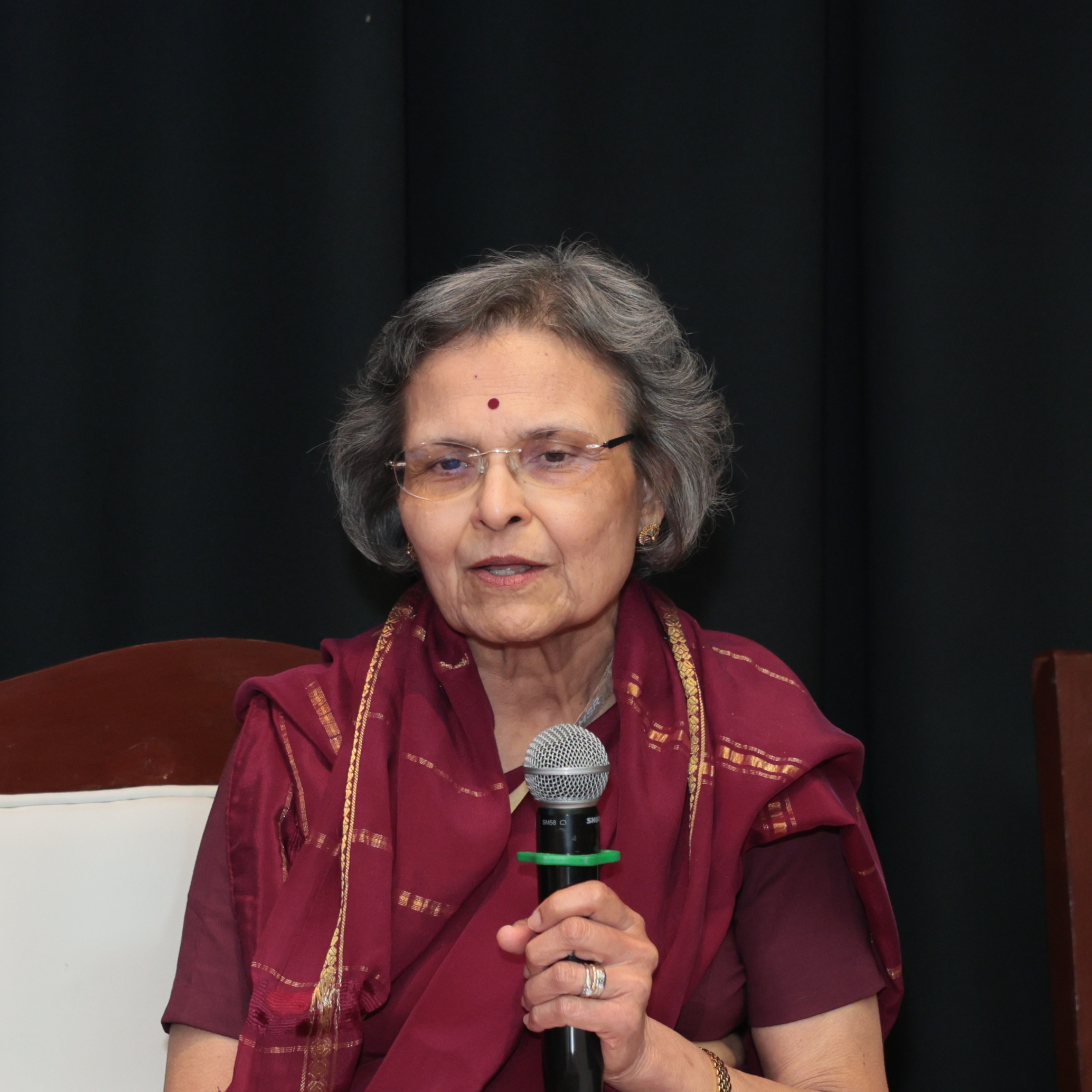
Prof Mala Rao is Director of the Ethnicity and Health Unit and Senior
Clinical Fellow in the Department of Primary Care and Public Health at
Imperial College London. She was Director of Public Health in the UK NHS in
the 1990s, Head of the Public Health Workforce for England from 2004 to
2008, and Director of the Public Health Foundation of India’s first
Institute of Public Health under the UK Global Health Strategy and UK–India
health collaboration from 2008 to 2011. She chairs the WHO Southeast Asia
Region’s Expert Group on the Environmental Determinants of Climate Change
and Health and served as Medical Adviser to NHS England’s Workforce Race
Equality Strategy from 2018 to 2022. Her career spans public health
practice, policy, research, and training, with major achievements in
workforce development, health systems strengthening, and environmental
health in the UK and overseas.
Her research and advice to governments and global institutions have improved
health care for millions in some of the poorest states in India and
elsewhere, earning her recognition among the most influential people in
India–UK relations. A champion of climate action, safe water and sanitation,
and gender equity, she guest edited the 2022 issue of the International
Review of Psychiatry on the climate crisis and mental health, and serves as
Vice Chair of WaterAid UK, as well as an honorary adviser to several
charities addressing health and social inequalities.
Globally respected for her work on race equality and the intersections of
race, health, and climate, Prof Rao led a review that prompted the
establishment of the NHS Workforce Race Equality Strategic Advisory Group
(of which she was Vice‑Chair, 2016–2018), co‑guest edited BMJ’s February
2020 special issue on Racism in Medicine (winner of a PPA in 2021), and in
2021 developed the Medical Workforce Race Equality Standard, a world first
in monitoring racism and discrimination in the medical workforce.
She has been named among the most influential ethnic minority figures in
English health and has received numerous honours, including an OBE in the
Queen’s Honours (2013), the Alwyn Smith Prize (2021), and an Honorary
Fellowship of the Royal College of Paediatrics and Child Health (2022).
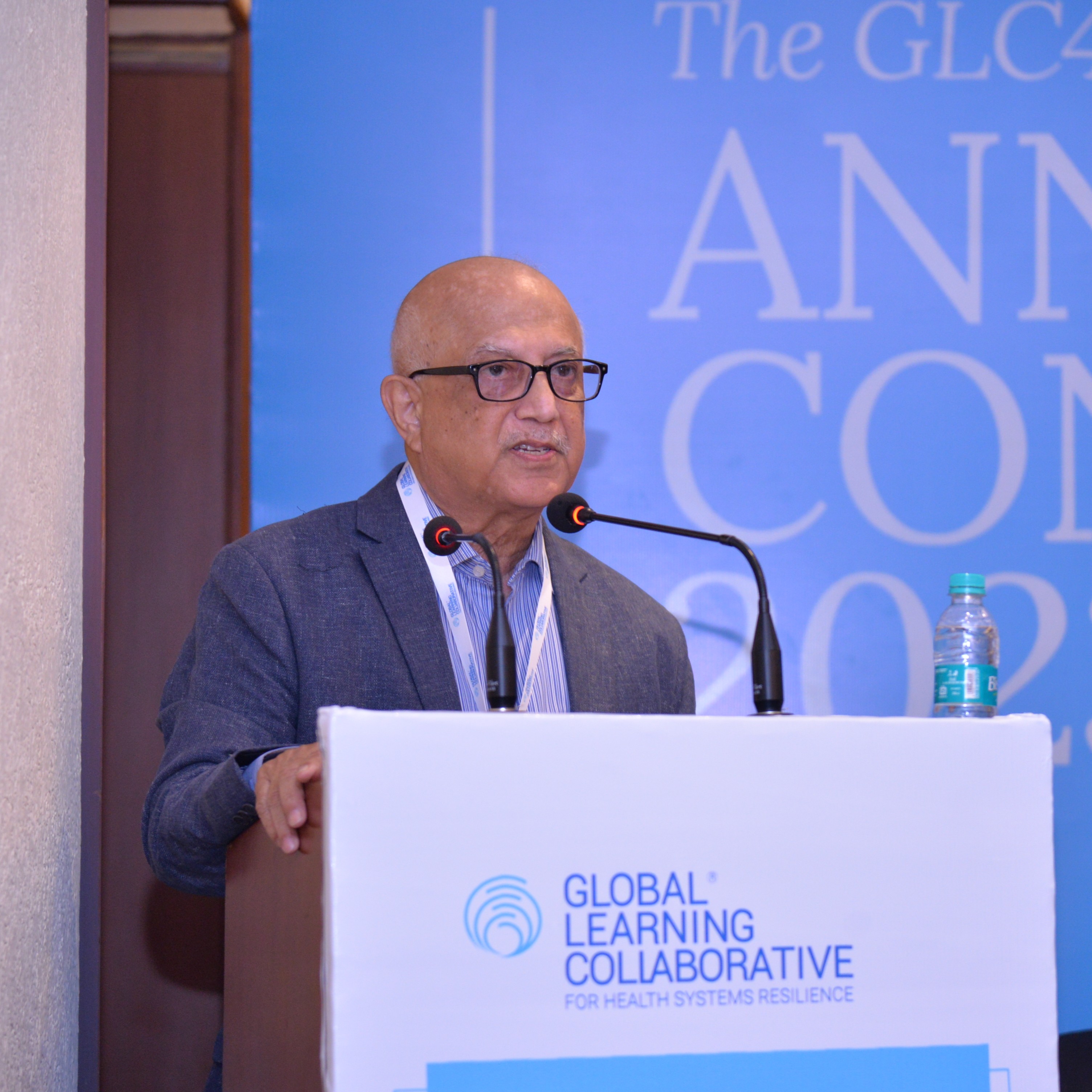
Prof. Mushtaque Chowdhury is Adviser to the James P. Grant School of Public
Health at BRAC University and Professor of Clinical Population and Family
Health at Columbia University Mailman School of Public Health. He is a
Bangladeshi development worker, researcher, academic, and
micro‑philanthropist who spent about four decades with BRAC—the world’s
largest NGO—serving as its Vice‑Chair, Executive Director, founding Director
of the Research and Evaluation Division (now part of the Graduate Institutes
of BRAC University), and founding Dean of the James P. Grant School of
Public Health.
He has also served as Senior Adviser and Acting Managing Director at the
Rockefeller Foundation and as a Fellow at Harvard University. Prof.
Chowdhury received the “Medical Award of Excellence” from Ronald McDonald
House Charities (Chicago) in 2017 and was honored by The Lancet for his
contributions to global health in 2013.
A founder of Bangladesh Education Watch and Bangladesh Health Watch—two
civil‑society watchdogs—he sits on the boards and committees of several
major organizations and initiatives. Prof. Chowdhury has published nearly
200 peer‑reviewed scientific articles and holds a Ph.D. from the London
School of Hygiene & Tropical Medicine, an M.Sc. from the London School of
Economics, and a B.A. (Hons) in Statistics from Dhaka University.
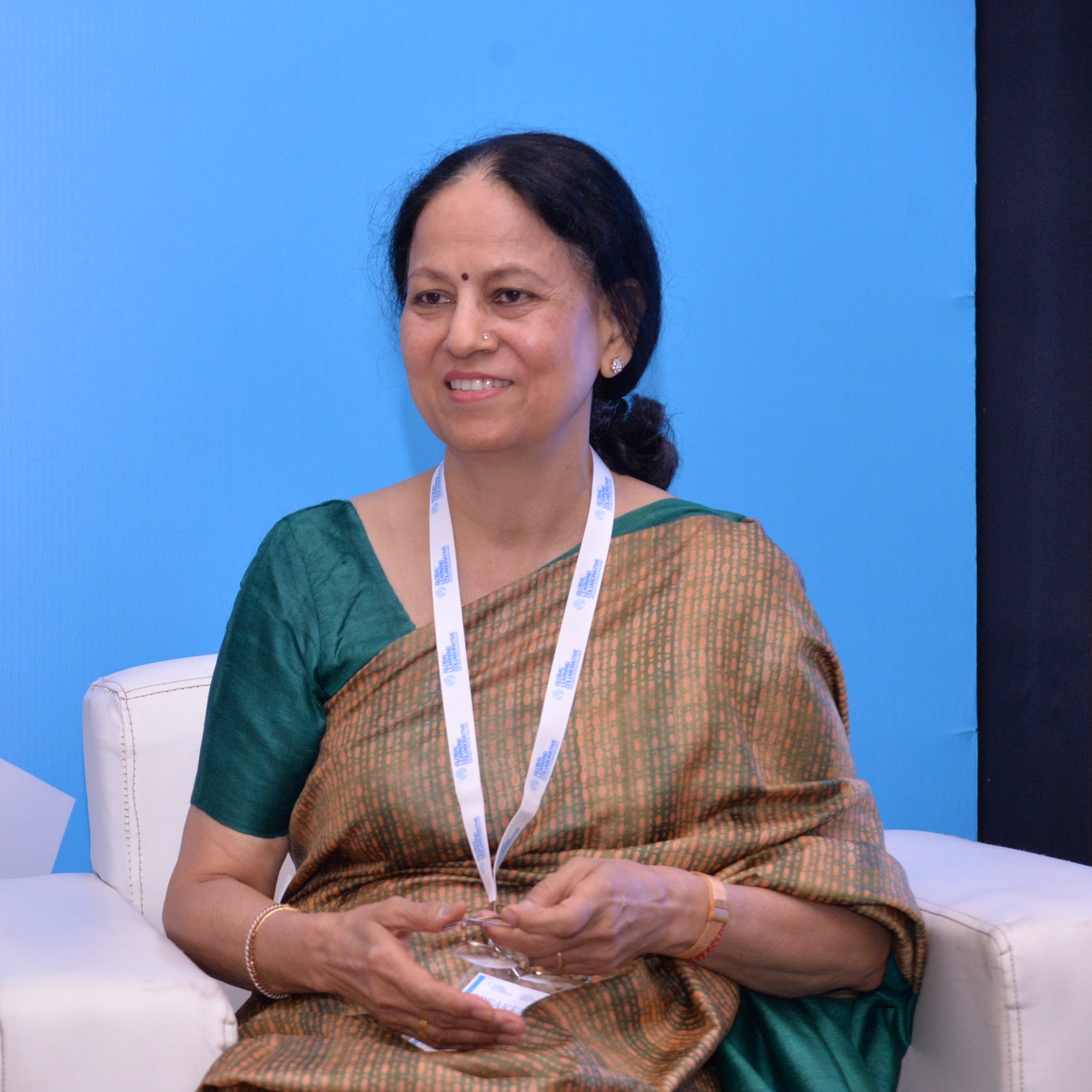
Prof. Shalini Bharat is Former Director/Vice Chancellor at Tata Institute of
Social Sciences, Mumbai, India, and has nearly four decades of experience in
teaching, research, capacity building, advocacy, and field action in broad
areas of social science and health, social development, family studies, and
minority community demographics. She is known for her work on equity and
access issues with special reference to reproductive and women’s health;
social determinants of HIV and TB, including stigma, discrimination, and
human rights issues; multi-purpose prevention technologies for the HIV
epidemic; self-testing for HIV prevention; young people’s health and
wellbeing; family studies and child adoption; women, work and family; and
demography of the Indian Parsi community.
With her wide experience in community-based research using qualitative and
mixed methodology research approaches, she has contributed to a deeper and
more nuanced understanding of the social and gender dimensions of a range of
issues concerning the health, development, and well-being of women, youth,
and vulnerable populations such as people living with HIV, transgender
people and homosexual men, and female sex workers.
She has also contributed to understanding the mainstreaming of gender in HIV
and mental health and social linkages for controlling drug-resistant TB. Her
research on the Parsi community is an in-depth exploration of the
psycho-social aspects of the demographic decline of India’s most threatened
population group on the verge of extinction.
As a member of several national scientific advisory committees and boards,
Prof. Bharat is actively engaged with a wide range of national-level
programs, schemes, policies, and field interventions in health and public
health, social development, gender, HIV/AIDS, and TB prevention.
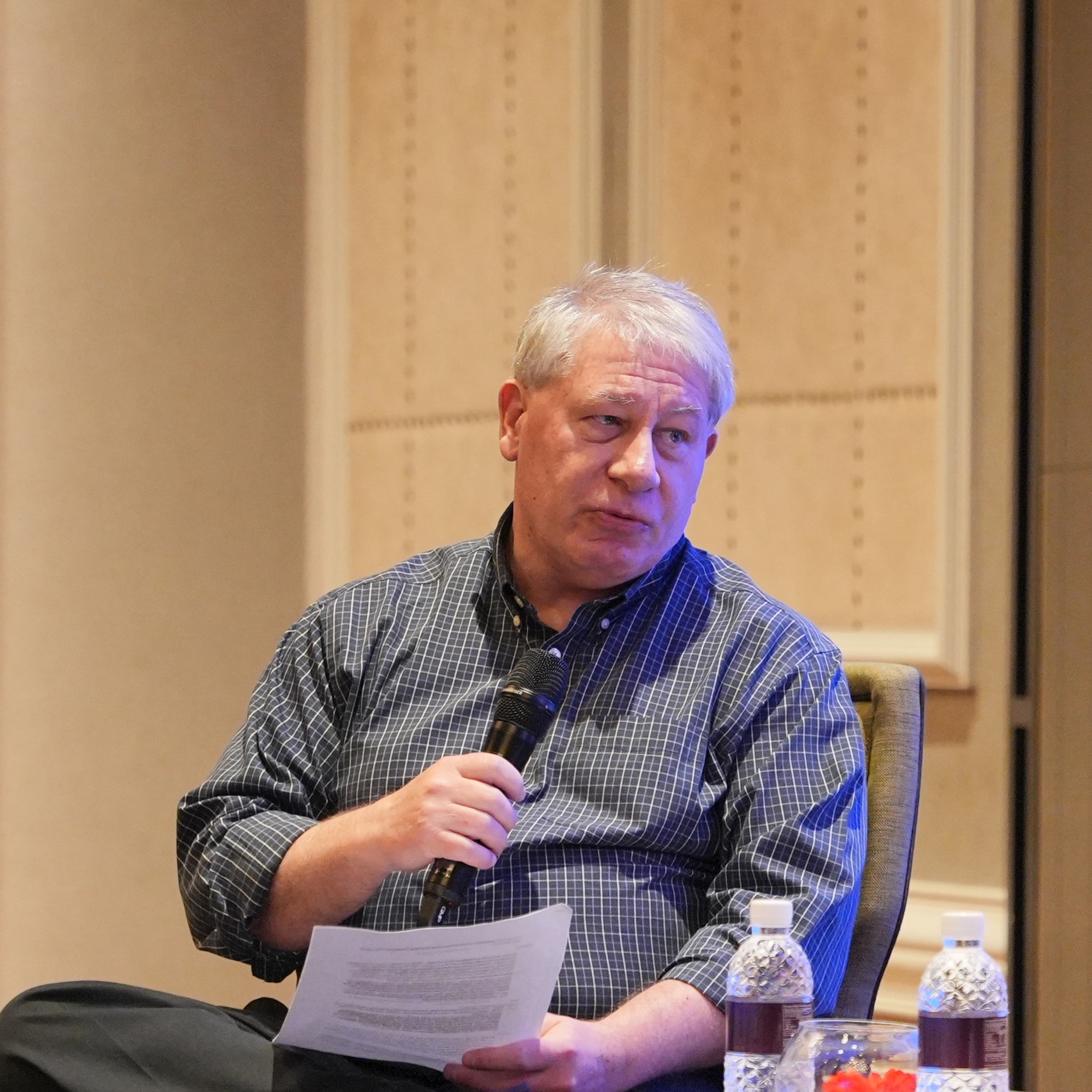
Mr. Stefan Nachuk is currently the Philanthropy Lead at Morris Brothers LLC.
Previously, he served as Deputy Director of Health System Design for the
Bill & Melinda Gates Foundation in India. Mr. Nachuk has also worked as a
Health Systems Specialist for ThinkWell Global and as a Lead – Private
Sector Health Initiative at the University of California, San Francisco.
Mr. Nachuk served as an Associate Director at The Rockefeller Foundation,
where he provided strategic leadership and guided efforts aimed at
transforming health systems in developing countries. Furthermore, he was a
key architect, financial supporter, and thought leader of The Rockefeller
Foundation’s Joint Learning Network (JLN) for Universal Health Coverage
(UHC).
He also promoted the creation of concrete models of climate resilience in
Asia. Prior to joining the Rockefeller Foundation, Mr. Nachuk was a Senior
Poverty Specialist with the World Bank, based in Indonesia, where he focused
on poverty analytics, service provision, local governance, and sub-national
investment climates.
Mr. Nachuk received a bachelor’s degree from Cornell University and a
master’s degree from the School of Advanced International Studies at Johns
Hopkins University.
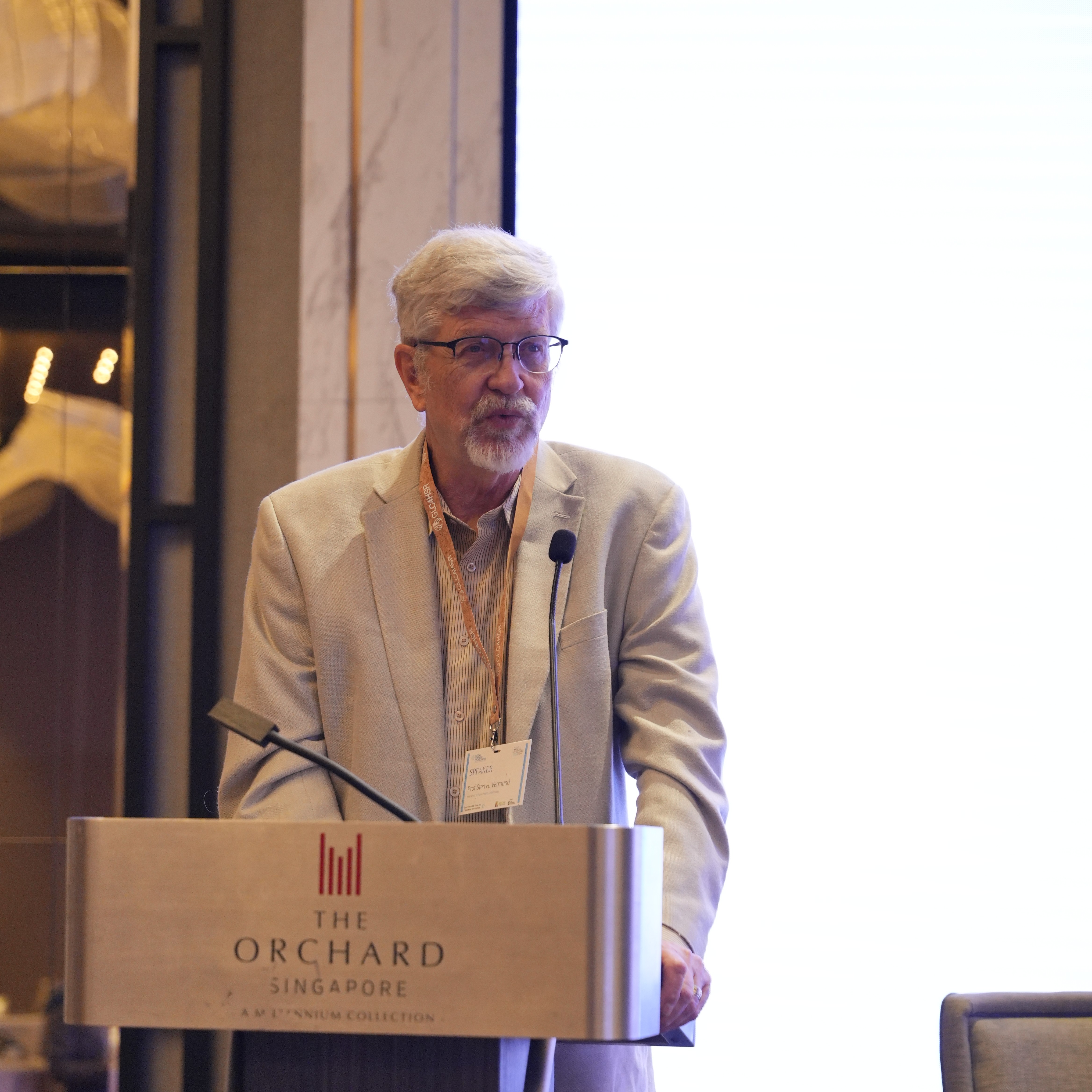
Dr. Sten H. Vermund is Senior Associate Vice President of USF Health and
Dean of the USF Health College of Public Health at the University of South
Florida. He is a pediatrician and infectious disease epidemiologist focused
on diseases of low and middle‑income countries. His work on HIV‑HPV
interactions among women in Bronx methadone programs motivated a change in
the 1993 CDC AIDS case surveillance definition and inspired cervical cancer
screening programs launched within HIV/AIDS programs around the world.
The thrust of his research has focused on health care access, adolescent
sexual and reproductive health and rights, and prevention of HIV
transmission among general and key populations, including mother‑to‑child.
Dr. Vermund has become increasingly engaged in health policy, particularly
around the sustainability of HIV/AIDS programs and their expansion to
non‑communicable diseases, the coronavirus pandemic response and prevention,
and public health workforce development. His recent grants include
capacity‑building for public health in Chad, molecular epidemiology for HIV
in Kazakhstan, and COVID‑19 vaccine studies in the Dominican Republic and
Connecticut. He has worked with schools and arts organizations for COVID‑19
risk mitigation and institutional safety.
Before joining USF, he was the Anna M.R. Lauder Professor of Public Health
and Professor of Pediatrics at the Yale School of Medicine.
The GLC4HSR welcomes the association of multiple stakeholders working towards strengthening health and other social systems.